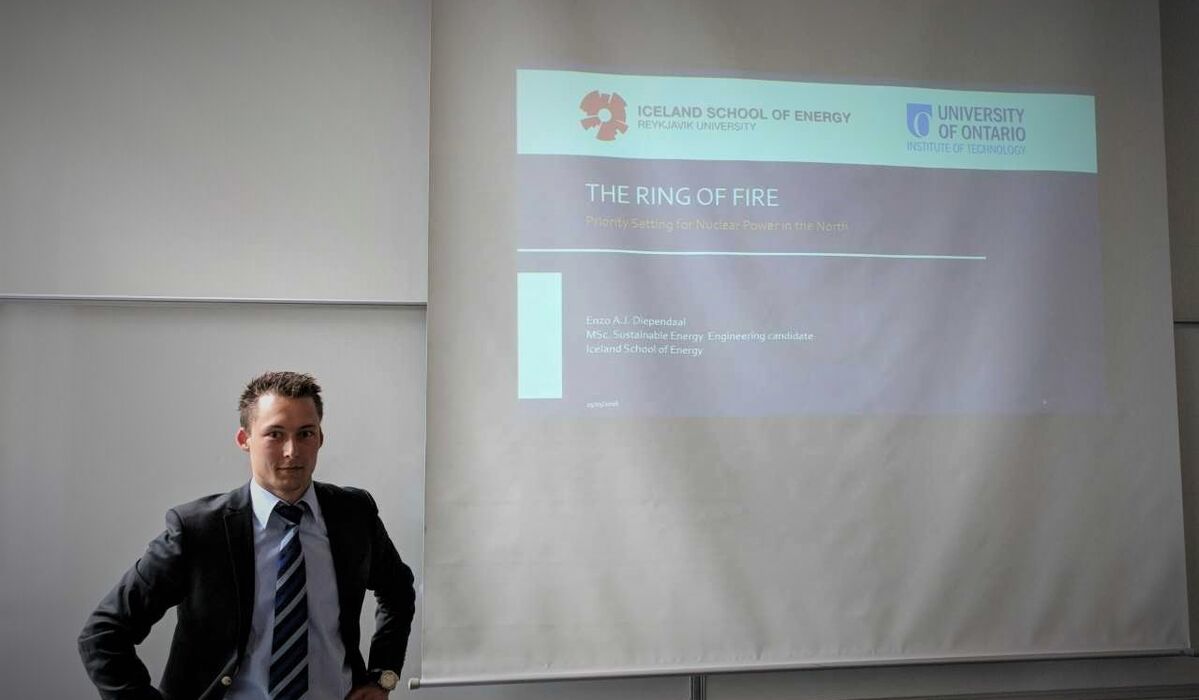MSc Thesis: The Ring of Fire: Priority Setting for Nuclear Power in the North
Enzo Diependaal successfully defends his master's thesis
REYKJAVIK, JULY 2 - On the 25th of May, Enzo Diependaal , MSc in Sustainable Energy Engineering, successfully defended his master's thesis research in which he used the TIMES modelling environment to create a priority setting framework for the deployment of small modular reactors (SMR) meant for mining in isolated, northern regions of Canada. Enzo's work was supervised by Einar Jón Ásbjörnsson from Háskólinn í Reykjavík and advised by Dr. Akira Tokuhiro from and Dr. Jennifer McKellar both from The University of Ontario Institute of Technology.

Enzo started his presentation by introducing the TIMES modelling environment, a framework that uses previous local or global knowledge to estimate the techno-economic components of energy projects. This model can conduct sensitivity analyses to compare tradeoffs and can model electrical grids to see the effects new energy sources will have. Overall, economic feasibility is the focus as can be seen from the functions to estimate cash flow and net present value to more sophisticated processes like using stochastic programming to solve single instances that take all potential values and uncertain parameters into account.
Enzo adapted the TIMES modeling environment to create the TIMES-Ring of Fire model to analyze different scenarios at the Eagle's Nest mine, a subsurface platinum group element mine in northern Canada that currently plans to operate for 11 years. Specifically comparing diesel to nuclear power. The scenarios researched were 'business as usual', a carbon tax scenario, a small modular reactor scenario and a peak power scenario
He found the proposed SMRs are more economically viable given the economic assumptions of the thesis. This warrants the need for further research into the operational costs of SMRs and a social and legislative analysis to the implementation of SMRs
The methodology of Enzo's study would be applicable in other isolated northern energy grids that want to explore power options other than diesel, as they would face similar technical and economic obstacles as the case he assessed. To read more about Enzo's work, click on the following link.
Congratulations, Enzo on an excellent thesis!
